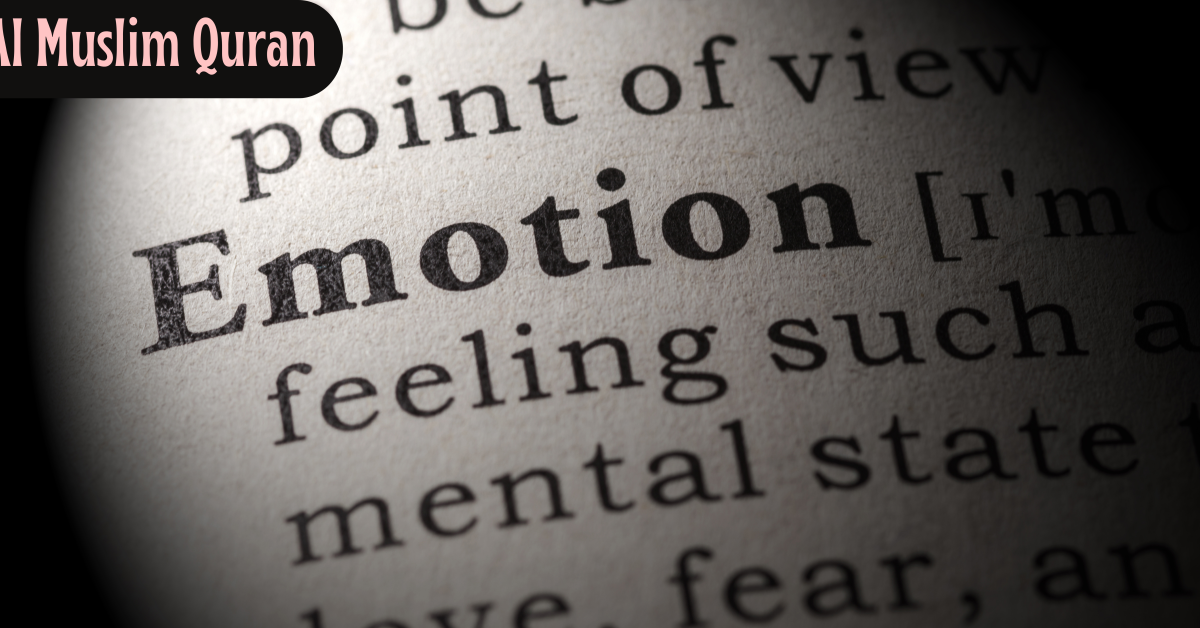Life is a journey filled with ups and downs. At times, we experience joy and gratitude, while at other times, sadness and anxiety take over our hearts.
Islam provides a deep, faith-based approach to healing emotions and finding inner peace.
The Quran and Sunnah offer valuable guidance on how to deal with our feelings, helping us navigate through hardships while staying connected to Allah.
This article explores the Islamic perspective on emotions and how we can find comfort in our faith during difficult times.
Understanding Emotions in Islam
Emotions are a natural part of human life. Allah created us with feelings like happiness, sadness, anger, and fear so that we can experience life fully. The Quran acknowledges human emotions and provides ways to manage them in a healthy and balanced manner.
The Role of the Heart in Islam
The heart (Qalb) is mentioned numerous times in the Quran as the center of emotions and spirituality. A healthy heart is one that is filled with faith, patience, and gratitude, while a troubled heart is often burdened with worries and sadness. Allah says:
“Verily, in the remembrance of Allah do hearts find rest.” (Quran 13:28)
This verse highlights the importance of remembering Allah (dhikr) as a way to bring peace to our hearts.
Healing Emotional Pain Through the Quran
The Quran serves as a source of healing and mercy for believers. When we feel lost, anxious, or overwhelmed, turning to the words of Allah can bring immense relief. Some key Quranic teachings about emotions include:
1. Patience During Hardships
Trials and tribulations are a part of life, but Islam teaches us to face them with patience (sabr). Allah promises that those who remain patient will be rewarded:
“Indeed, with hardship comes ease.” (Quran 94:6)
This verse reassures us that no difficulty lasts forever, and relief will follow.
2. Trusting Allah’s Plan (Tawakkul)
When we struggle with fear or uncertainty, we should place our trust in Allah’s wisdom. He knows what is best for us, even when we don’t understand it at the moment:
“And whoever relies upon Allah – then He is sufficient for him.” (Quran 65:3)
3. Seeking Forgiveness and Repentance
Sometimes, emotional distress stems from our own mistakes. Islam encourages us to seek forgiveness from Allah (Istighfar), as it brings peace to the soul and removes burdens from the heart.
“And whoever does evil or wrongs himself but then seeks forgiveness of Allah will find Allah Forgiving and Merciful.” (Quran 4:110)
The Sunnah’s Approach to Emotional Well-Being
The Prophet Muhammad (peace be upon him) was the best example of emotional strength and resilience. He faced immense hardships but always remained patient, hopeful, and connected to Allah. His Sunnah provides practical ways to manage emotions, including:
1. Dealing with Anger
Anger is a natural feeling, but Islam teaches us how to control it wisely. The Prophet (PBUH) said:
“If one of you becomes angry while standing, let him sit down. If the anger goes away, well and good; otherwise, let him lie down.” (Abu Dawood)
He also recommended making wudu (ablution) to cool down anger.
2. Finding Peace in Prayer (Salah)
Salah is a direct connection between a believer and Allah. The Prophet (PBUH) would turn to prayer whenever he felt troubled, saying:
“O Bilal, call the Adhan so that we may find comfort in prayer.” (Abu Dawood)
Praying five times a day helps regulate emotions, reduce stress, and strengthen our faith.
3. Helping Others as a Form of Healing
The Prophet (PBUH) taught that helping others brings joy and relief to one’s own heart. Engaging in charity (sadaqah) and being kind to others can uplift our spirits and bring peace to our hearts.
“The best of people are those who bring the most benefit to others.” (Al-Mu’jam al-Awsat)
Practical Steps to Emotional Healing in Islam
Here are some steps we can take to manage emotions and find peace through faith:
- Regularly Read and Reflect on the Quran – The Quran is a source of healing. Reading it with understanding can calm the heart and provide solutions to emotional struggles.
- Engage in Dhikr (Remembrance of Allah) – Saying phrases like SubhanAllah, Alhamdulillah, and Allahu Akbar can bring peace and increase gratitude.
- Perform Salah on Time – Sticking to daily prayers helps structure our day and provides spiritual comfort.
- Make Dua (Supplication) Often – Talking to Allah about our struggles brings relief and strengthens our faith.
- Surround Yourself with Positive People – Being around righteous and supportive people can have a positive impact on our emotions.
- Practice Gratitude – Focusing on our blessings rather than our problems helps shift our mindset towards positivity.
Conclusion
Islam provides a comprehensive guide to understanding and managing emotions. Through the Quran and Sunnah, we learn that hardships are temporary and that Allah’s mercy is infinite.
By strengthening our faith, practicing patience, and engaging in acts of kindness, we can heal our hearts and find true peace.
Whenever we feel overwhelmed, we should remember that Islam has given us the tools to navigate through life’s emotional challenges with wisdom and faith. May Allah grant us all peace and tranquility in our hearts. Ameen.



